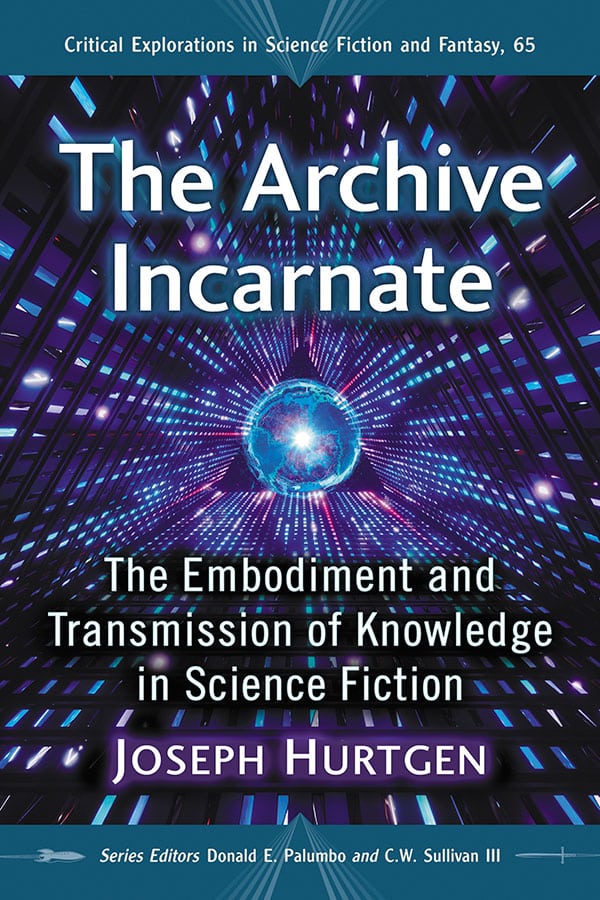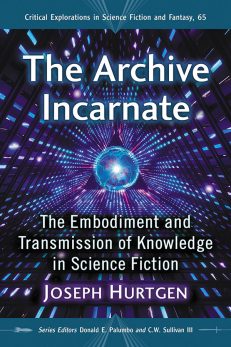The Archive Incarnate
The Embodiment and Transmission of Knowledge in Science Fiction
Original price was: $55.00.$27.99Current price is: $27.99.
In stock
About the Book
We live in an information economy, a vast archive of data ever at our fingertips. In the pages of science fiction, powerful entities—governments and corporations—attempt to use this archive to control society, enforce conformity or turn citizens into passive consumers. Opposing them are protagonists fighting to liberate the collective mind from those who would enforce top-down control. Archival technology and its depictions in science fiction have developed dramatically since the 1950s. Ray Bradbury discusses archives in terms of books and television media, and Margaret Atwood in terms of magazines and journaling. William Gibson focused on technofuturistic cyberspace and brain-to-computer prosthetics, Bruce Sterling on genetics and society as an archive of social practices. Neal Stephenson has imagined post-cyberpunk matrix space and interactive primers. As the archive is altered, so are the humans that interact with ever-advancing technology.
About the Author(s)
Bibliographic Details
Joseph Hurtgen
Series Editors Donald E. Palumbo and C.W. Sullivan III
Format: softcover (6 x 9)
Pages: 209
Bibliographic Info: bibliography, index
Copyright Date: 2018
pISBN: 978-1-4766-7246-5
eISBN: 978-1-4766-3395-4
Imprint: McFarland
Series: Critical Explorations in Science Fiction and Fantasy
Table of Contents
Preface 1
Introduction • Archive Theory and Sf 5
Introduction 5
Theoretical Overview 10
Archival Control 27
Archival Resistance 29
Chapter Outline 31
Theory Summary 31
Conclusion 35
One • Fahrenheit 451 and the Archive 37
Introduction 37
Archive-Anxiety 41
Archival Domination 47
Resistance to Archival Erasure 56
Conclusion 65
Two • Rejecting Archival Embodiment in The Handmaid’s Tale 67
Introduction 67
Archive-Anxiety 70
Archival Control 73
Archival Resistance 85
Conclusion 93
Three • Disembodied Embodiment of the Archive in Gibson’s Neuromancer and “Johnny Mnemonic” 95
Introduction 95
Archive-Anxiety 100
Archival Control 103
Archival Resistance 114
Conclusion 127
Four • Genetic and Technological Embodiment of the Archive in Bruce Sterling’s Distraction 129
Introduction 129
Archive-Anxiety 135
Archival Control 140
Archival Resistance 145
Conclusion 149
Five • Education Through the Digital Archive in Neal Stephenson’s Snow Crash and The Diamond Age, or, A Young Lady’s Illustrated Primer 151
Introduction 151
Archive-Anxiety 156
Archival Control 160
Archival Resistance 167
Conclusion 181
Epilogue • Archival Embodiment in Cory Doctorow’s Down and Out in the Magic Kingdom and Ernest Cline’s Ready Player One 185
Bibliography 191
Index 199






